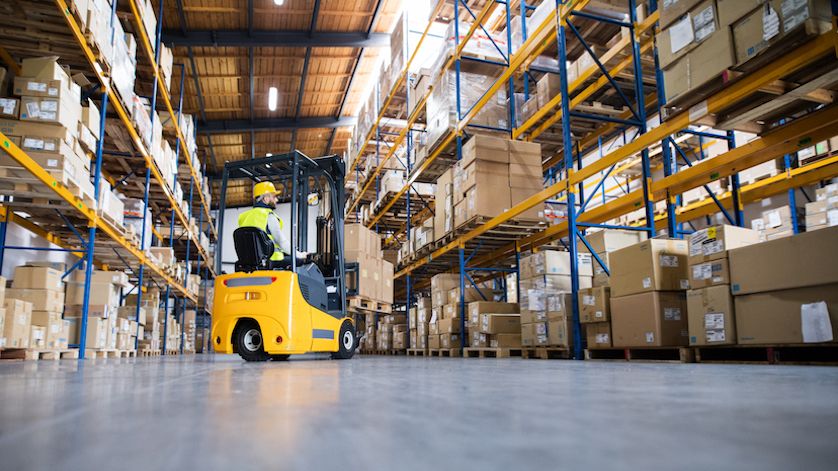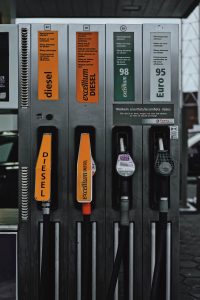
LEICESTER, England— Earlier this month, industry leader Angus Lift Trucks released a memo about the technology trends creating a mass evolution in the forklift industry. Each of these technologies will streamline the tasks of companies and keep workers safe.
Despite widespread concern about technologies like automation and AI making the human workforce redundant, Adam Lantsbery, Commercial Director at Angus Lift Trucks, assures that “these technologies are changing the forklift industry for the better.”
On average, around five people receive life-changing injuries from forklift accidents every day in the UK, with trends showing an increase in fatalities in recent years. It is increasingly imperative to utilize emerging technologies to innovate in the forklift industry.
Angus Lift Trucks’ review of five transformative technologies shows that automation can improve the safety of forklifts without replacing workers. Automated Lift Trucks (ALTs) receive training from operators, who then step aside and monitor the forklifts at a safe distance.
Automation is already in place in other industries. For instance, automated guided vehicles (AGVs) are widely used at Amazon, creating 300,000 new jobs. Autonomous mobile robots (AMRs), like Google’s automated cars, utilize artificial intelligence to gather knowledge about their surroundings and make changes as needed.
Adam Lantsbery believes that implementing these technologies in the forklift industry can open jobs, reduce costs, improve efficiency, and keep companies up-to-date on market trends. Furthermore, ALTs will place people in more meaningful jobs that eschew monotonous tasks for human interaction.
Another vital technology detailed by Angus Lift Trucks is artificial intelligence. “Artificial intelligence will revolutionize the forklift industry,” Lantsbery says. AMRs and AI forklifts can detect traffic patterns, choose efficient routes, and work in spaces that humans cannot.
AI forklifts can reduce work-related injuries and fatalities, boost efficiency and productivity, and assist human workers. Also, they can work in tight spaces or with hazardous materials in dangerous conditions without threatening human life.
“You may not think about it”, but Adam Lantsbery pointed out how “5G can also change how we use forklifts. By accelerating technology speeds, 5G devices can enhance the connectivity of warehouse workers.”
Angus Lift Trucks believes that 5G will aid in remote-controlled forklifts, enhanced safety, and workplace comfort. While forklift operation is typically viewed as a job that must be performed in-person, 5G and automation technologies make working from home a possibility.
Imagine a world where construction workers don’t need hard hats! Adam Lantsbery knows it’s possible, and it’s coming soon. Linde, Toyota, CESAB, Hyster, and Geodis have all integrated AI forklifts with remote operations in their companies. Soon, it will be commonplace.
5G connects to the Internet of Things (IoT), which includes all objects with an internet connection. Supply chain management and warehouses have already seen the use of Palletech’s smart pallets and RFID tags to track shipments and inventory while preventing fraud.
According to Adam Lantsbery, the future involves AI forklifts operated remotely using 5G and working with smart pallets. By further integrating these technologies, companies can optimize their use of these technologies to create a safer workplace environment.
The last technology covered in this must-read memo concerns fuel. Forklift operation power or fuel technology is essential to the operation of forklifts. Due to the environmental and quantitative drawbacks of these resources, an emerging fuel may transform the forklift industry – hydrogen fuel cells.
Hydrogen is efficient, safe, fume-free, and zero-carbon. It improves the productivity of forklifts without being detrimental to the health of workers or the environment. Hydrogen fuel is the next big thing in vehicular power.
The impact of Fuel Technology advances in the Forklift Industry
Present-day forklifts use one of three fuel sources: diesel, batteries, or liquified petroleum gas (LPG). Diesel produces exhaust and requires areas with inadequate ventilation while batteries take up valuable warehouse storage space. LPG consumes fossil fuels.
Consequently, more organizations are aware of their carbon footprint and how their business operations affect the environment. Energy and fuel are the main products for production and are continuously scrutinized, especially in warehouses that use heavy equipment like forklifts.
The next advancement in fuel technology for forklifts lies in hydrogen. Hydrogen fuel cells can be used to power forklifts, lift trucks, tractors, and cars. The hydrogen fuel vehicles recharge at a station just like a diesel vehicle would. Companies can install refueling stations inside the warehouse so machines can get back to work quickly.
Hydrogen fuel cells can ensure business operations can resume without operator downtime by taking only minutes to refuel and avoid production gaps. All around, hydrogen fuel cells look to be a better cost-effective choice for man-driven forklifts in a warehouse setting.
Companies that seek a more environmentally-friendly alternative to warehouse material management are looking to hydrogen fuel cells.

Unlike diesel, the only byproduct of hydrogen is water. For those countries aiming to reduce their impact on the climate, hydrogen is a safe choice. While most hydrogen comes from natural gas extraction, agricultural and waste sources also exist.
Unfortunately, these factors can hinder the collection, transportation, and storage of vast amounts of hydrogen in many areas around the world.
The energy provided by hydrogen fuel is impressive. Compared to gasoline, it’s almost three times the power. One kilo of hydrogen contains as much energy as 2.8 kilos of gasoline. Hydrogen-powered engines don’t expel toxic fumes and don’t need workers to refuel them as often as gasoline.
Compared with electricity-powered vehicles, hydrogen goes the distance. While an electric car can typically drive for 160-320 km without recharging, a hydrogen vehicle can go nearly 500 km. They also recharge faster, in about five minutes.
Gasoline freezes at around -73 ℃ while hydrogen’s freezing point is near -250 ℃. This lower freezing point enables hydrogen-fueled vehicles to operate in colder conditions like industrial freezers.
For all of their advantages, hydrogen fuel cells remain the most expensive power option. This difference is mainly due to storage and availability concerns. While it’s not costly to produce, these concerns drive up the cost to the end-user.
Right now, about 500 hydrogen cell forklifts are in operation throughout Europe. Toyota, Linde, Hyster-Yale, STILL GmbH, and Hydrogenics are among the world’s top manufacturers. That number is likely to jump as the technology becomes more available, and organizations can fiscally implement these advancements.
At the moment, only large corporations like Amazon and ASDA can afford to implement hydrogen. Smaller warehouses and independent distributors will have to wait until the cost comes down.
In a warehouse setting, hydrogen fuel cell vehicles translate to better working conditions and less downtime. PlugPower, one producer of hydrogen fuel cells, claims they lower operational costs by 84% compared with combustion generators.
This technology is probably the least likely of the five listed to put forklift drivers out of a job. Those vehicles in operation now are driven the traditional way. However, combined with AI and other automation, supply chain managers can increase productivity by operating 24/7.
Manual operators will still be in demand for completing warehouse duties where this heavy equipment is necessary. In fact, organizations may need more warehouse staff if production becomes more efficient and business operations increase due to less downtime.
Hydrogen fuel cells can easily integrate within the standard forklifts that are in use today, making the switch easy for companies who can afford the up-front costs of the transition.
Angus Lift Trucks dives much deeper into each of these technologies to see how they will innovate the forklift industry, and everyone should read this post to learn what the future will look like.
Read the rest of this powerful article on technologies impacting forklift industry on Angus Lift Trucks website.
About Angus Lift Trucks LTD
Angus Lift Trucks LTD is a notably large and successful independent dealership of forklifts for sale and https://anguslifttrucks.co.uk/forklift-hire-uk/hire, floor care equipment, and access platforms. They have received the national certificate of compliance from the Forklift Truck Association FLTA. The company prides itself on high-quality customer service and its practical training and development strategy.
Trainers at Angus Lift Trucks provide forklift operation training in the following areas: Birmingham, Derbyshire, East & West Midlands, Leicestershire, Nottinghamshire, and Northamptonshire.
Angus Lift Trucks is the go-to-vender for learning how to embrace the changing landscape of forklift operation. Whether reading their blog to learn more about the industry or utilize their services, there is something on their website for all things forklifts.
Read the most up to date Fuel Cell and Hydrogen Industry news at FuelCellsWorks




